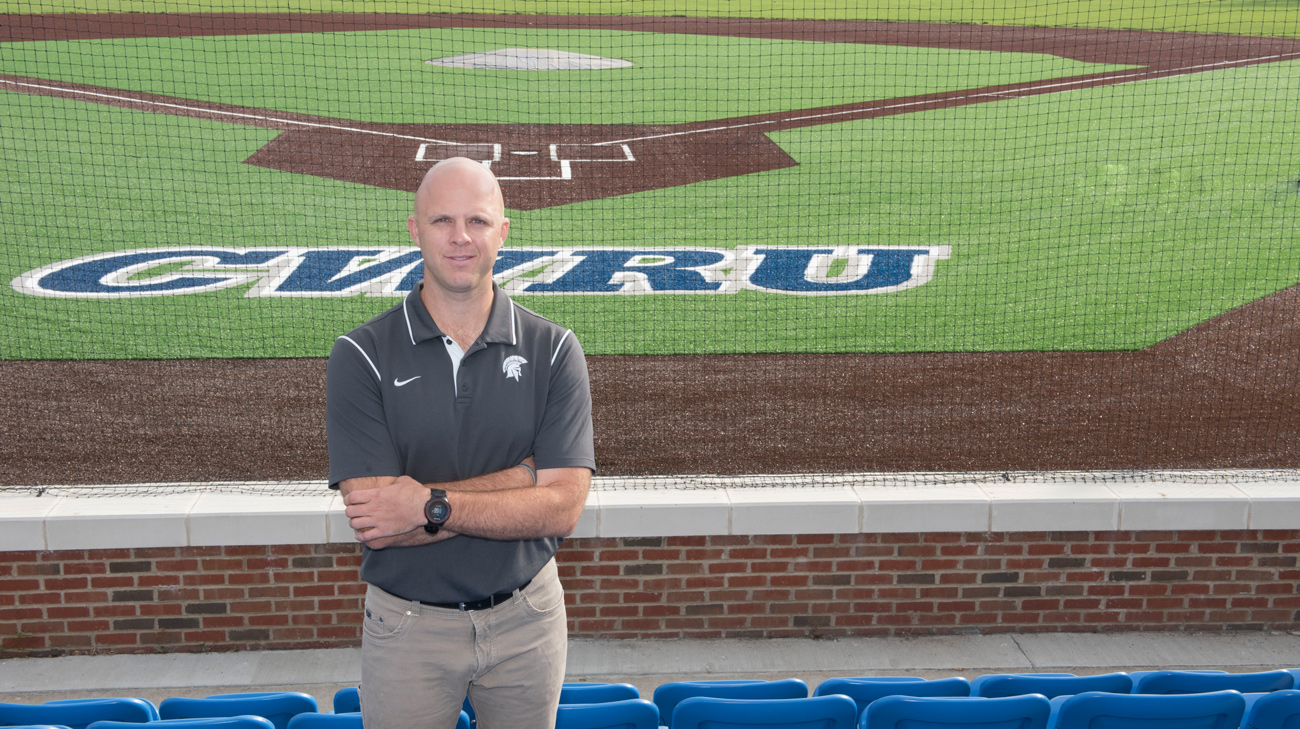
Always an athlete, former college baseball player Matthew Englander turned his love of the game into a career. The now 37-year-old husband and father of two boys has been the head baseball coach of the Case Western Reserve University Spartans since 2007.
Flash forward to September 2011, when Matt experienced dizziness and numbness in his left arm that went away. But a second, similar episode had him on his way to the hospital, where a variety of tests led to a diagnosis of a malignant brain tumor – a grade 2 oligodendroglioma.
“Matt’s tumor developed from cells that support functions of nerve cells or neurons in the brain,” explains Mladen Golubic, MD, PhD, Medical Director of the Center for Lifestyle Medicine at Cleveland Clinic’s Wellness Institute at the Lyndhurst campus. “While a lower grade and less aggressive than the more common glioblastoma tumor, the diagnosis was still a major concern.”
Matt immediately made major changes to his diet; he eliminated meat, sugar, caffeine, processed foods, alcohol and more. “Prior to the diagnosis, I ate a typical mid-western diet – meat with every meal, big beer drinker. I definitely didn’t eat healthy,” says Matt. “I basically went vegan overnight; and I started exercising, specifically long-distance running, which I’d never done before.”
Matt had surgery to remove the tumor the month it was diagnosed. Ten months later, he ran his first marathon. He has since completed nine, has two more coming up, and hopes to run a marathon in each of the 50 states.
“While other doctors supported the changes I’d made to my diet and exercise regimen, Dr. Golubic provided me with actual data that reinforced that my lifestyle changes were making a difference... being a part of my own care makes a big difference – it’s very empowering.”
Shortly after his diagnosis, a friend of Matt’s put him in touch with an acquaintance who had a different type of brain tumor. When he had surgery to remove a glioblastoma the size of a fist, he was told he had six months to live. “He modified his diet and increased his exercise,” says Matt. “I did pretty much everything he told me he had done, because he was still living 18 years after being diagnosed.”
Matt also attended a Cleveland Clinic brain tumor support group session where Dr. Golubic was a guest speaker. There he learned that along with healthy food choices, meditation and other lifestyle changes can help those battling cancer and other conditions by reducing stress, improving sleep quality and more.
“Surgery to remove a brain tumor is challenging, as it’s impossible to visualize the entire tumor. Surgeons do their best to remove all of the cancer cells, but some can remain,” explains Dr. Golubic.
In Matt’s case, for five years, routine MRI scans done every few months showed stability. Then, in January 2016, there was some evidence of tumor growth. At that time, Matt began a chemotherapy regimen that lasted for nearly a year – a year in which he continued to run marathons, follow a strict whole foods, plant-based diet and see Dr. Golubic regularly for added support.
“While other doctors supported the changes I’d made to my diet and exercise regimen, Dr. Golubic provided me with actual data that reinforced that my lifestyle changes were making a difference,” says Matt. “He also introduced me to meditation. I was really skeptical, but after seeing data that showed how meditation contributes to a relaxation response that can reduce respiratory rate, heart rate, blood pressure and muscle tension, and improve relaxation, I was 100 percent on board. Being a part of my own care makes a big difference – it’s very empowering.”
Matt’s most recent MRI scan showed a reduction in the size of his tumor.
Dr. Golubic praises Matt for his courage, focus, persistence and ability to inspire others while dealing with a brain tumor diagnosis. “No matter how tough you are, that has to shake you,” he muses.
“At Cleveland Clinic, we offer the best of modern medicine. We can diagnose the exact molecular makeup of a tumor and treat it with the appropriate molecular therapy,” says Dr. Golubic. “And we’re combining that with lifestyle changes to improve overall health, increase resilience to reduce stress, improve sleep and, ultimately, provide optimal care for cancer patients.”
Related Institutes: Neurological Institute

